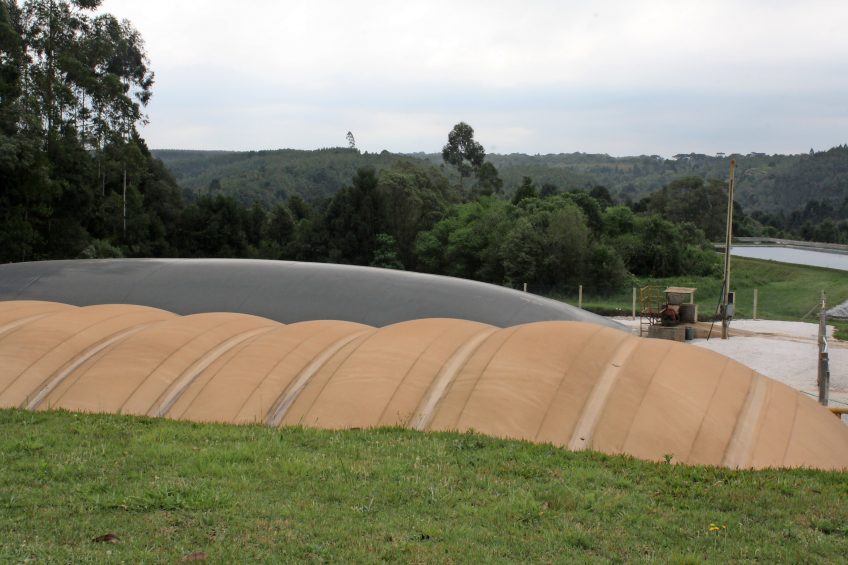Brazil’s pig farmers can sell energy from biogas

In Brazil’s Santa Catarina state, pig producers have been allowed to start selling energy from biogas after a recent change in legislation.
Santa Catarina is the 1st state in Brazil to create a specific law concerning production and utilisation of biogas. The rule has paved the way to eventually use a huge potential for generating 9 TM/h from 2.26 billion m3 of biomethane per year – which is the amount generated on pig farms all around the country.
Santa Catarina is main production state
As the main pig producing state, Santa Catarina is responsible for 26% of Brazil’s herd (43 million head). Biogas technology has been adopted in Brazil since the early 2000s. Prior to the new legislation, however, selling energy for public use was not an attractive option, as the state did not encourage this with e.g. tax reductions or subsidies. As a result, in practice, the farmers could only use this alternative energy source within their own premises. After the change, they can sell energy and gas for public lines of distribution.
Additionally, the state government intends to set up a credit system as well as simpler rules to stimulate this type of investment. Those exact details, however, did not form part yet of the legislation that was approved by the state’s governor and congress.
Aurora: Happy with biogas for a long time
Brazil’s most important cooperative, Aurora, adopted biogas technology about 10 years ago, e.g. for energy development purposes. Mário Lanznaster, president of the cooperative, commented that the legislation had been a request by producers for many years. He said, “We were always obliged to waste a relevant resource. I expect that the process will become much simpler.”

He added, “I have this technology in my own property for energy. Now, I believe that it will increase the interest between the producers. It is the kind of investment that will create payback in 15 months for the generator, and in 5 years for the entire system.”
Aurora and its sub-cooperatives slaughtered 4.8 million head of pigs in 2017, which is 11% of the country’s total. Mr Lanznaster said, “Aurora will show the way for our producers and develop their projects. I just completed the connection to energy public lines on my own farm. I think other producers could be interested too.”
Good news for pig farmers and the environment
The development is good news for the environment, farmers and ABiogás, the Brazilian association for biogas. Its president, Alessandro Gardemann, explained that the price for this kind of system depends on the technology and the size of process.

Find more about Brazil’s pig industry in our World of Pigs tool
He said, “In the economic model we used, the complete installation costs range from R$ 7 million to R$ 9.5 million (€ 1.6 million to € 2.2 million). Return of investment is around 5 years. These days it is easy to find supply of all services and equipment for a biogas plant. The remaining obstacles are related to a limited amount of workers and gas analysis laboratories.”
On top of good income with energy, and the saving of costs, the sector expects recognition from consumers as well as society concerning their sustainable practices. Mr Lanznaster said, “We hope this producer effort, along with other initiatives, will be noticed and appreciated.”







